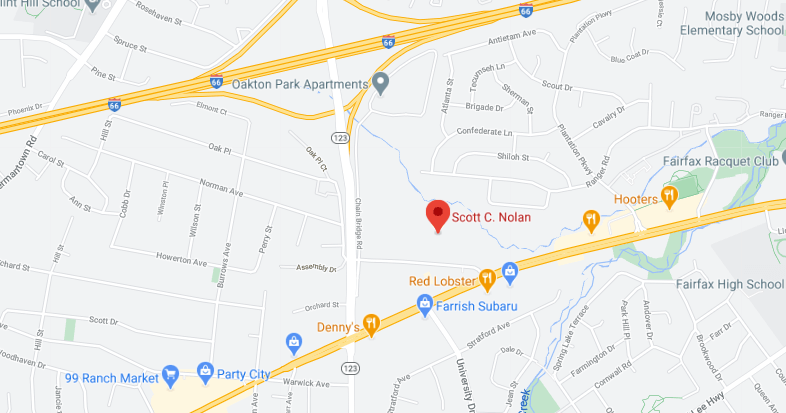Being charged with any level of murder is serious. It’s essential to understand what could happen if someone is convicted of second-degree murder. Read on for what you need to know.
What Are the Different Levels of Murder Charges in Virginia?
Virginia categorizes murder into five levels.
- Capital murder.
- First-degree murder.
- Second-degree murder.
- Voluntary manslaughter.
- Involuntary manslaughter.
The difference between the murder and manslaughter charges is that murder is considered a killing done with malice, while manslaughter is a killing done without malice. A killing done with malice means it was done intentionally, without just cause, or due to ill will. A killing done without malice is not preplanned or done intentionally but is usually done accidentally or in the heat of the moment without forethought.
How Is Second-Degree Murder Defined in Virginia?
In Virginia, second-degree murder is defined more in terms of what it isn’t than what it is. Second-degree murder is any kind of murder involving malice (as discussed above) that isn’t capital or first-degree murder.

To understand what second-degree murder isn’t, here’s what the other categories are defined as:
Capital murder. This murder was done intentionally and premeditated (meaning with prior planning). It’s the most serious form of murder. Capital murder involves:
- Killing a woman the killer knows is pregnant.
- Killing a law enforcement officer or firefighter while they’re working.
- Being hired to kill someone at someone else’s request.
- Killing someone under the age of 14 years.
- Killing someone who has been called to testify in court against another person to prevent them from testifying.
- Killing someone while in the act of another crime, including rape, theft, or the manufacture, sale, or distribution of Schedule I or II drugs.
First-degree murder. This is the second most serious level of murder. First-degree murder involves:
- The use of poison, imprisonment, starvation, or entrapment (lying in wait).
- Any willing or premeditated murder that isn’t included in capital murder.
- Any murder that happens when someone commits or tries to commit several sexual assaults, robbery, burglary, arson, or abduction.
Second-degree murder then is any murder committed with malice that doesn’t fall into the categories of capital or first-degree murder. It may not always include intent. Instead of intent, it could include awareness that the person’s actions carry a high risk of causing death and not caring. For example, if someone is arguing with someone and begins choking them, even if they’d had no prior intention of killing them, they could be aware that choking could lead to death but not care and continue until the other person is dead.
What Are the Consequences of Being Convicted for Second-Degree Murder in Virginia?
The penalties for being convicted of second-degree murder in Virginia vary quite a bit based on the circumstances and the manner of the murder. However, even at its lightest sentencing, a second-degree murder conviction caused the convicted person to have a permanent criminal record showing a felony. That can have lifelong implications, including (but not limited to) difficulty getting a job or housing.

Besides the permanent record, the court could order the convicted person to pay up to $100,000 in fines and spend anywhere from 5 to 40 years in prison.
What Are Possible Defenses if I’m Charged with Second-Degree Murder?
Because this is a serious crime with life-impacting consequences, developing a solid defense should involve a seasoned criminal defense attorney who understands the laws in Virginia and what types of defense may work.
- There’s a solid alibi. If someone can prove they were not at the scene of the crime at the time of the crime, that can have a significant impact on the case. However, it’s not enough to state they were somewhere. There has to be proof, which can be in the form of eyewitnesses, time stamps, security cameras, or other methods.
- The death happened due to self-defense. Defending oneself is a good defense, but in Virginia, that defense requires that the force used must have been reasonable in terms of the danger being faced.
- The death happened while defending others. This can also be a good defense, but as with self-defense, the use of force needs to be considered reasonable in terms of the danger.
- The death was an accident. To gain a murder conviction, the prosecution must prove that the death was intentional or premeditated. If it happened by accident, it doesn’t meet that standard and could possibly be downgraded to manslaughter.
- The wrong person was charged. This involves mistaken identity, either because someone looks like someone else or was at the wrong place at the wrong time. This defense is required to prove that the wrong person was charged and had nothing to do with the murder.
- Constitutional rights violated. It’s not uncommon for someone’s constitutional rights to be violated during a crime investigation and arrest. Once proven, that could lead to charges being dismissed or reduced or pieces of evidence not being allowed in the case.
What Should I Do if I’ve Been Charged with 2nd Degree Murder?
Call me as soon as possible at 703-688-9236 to request a free case evaluation. Murder is a serious crime that can have significant consequences. Working with a knowledgeable, experienced criminal defense attorney who understands Virginia’s murder laws and knows how to build a defense could help prevent you from facing some or all of those consequences. The sooner we get started, the better, so call today.











